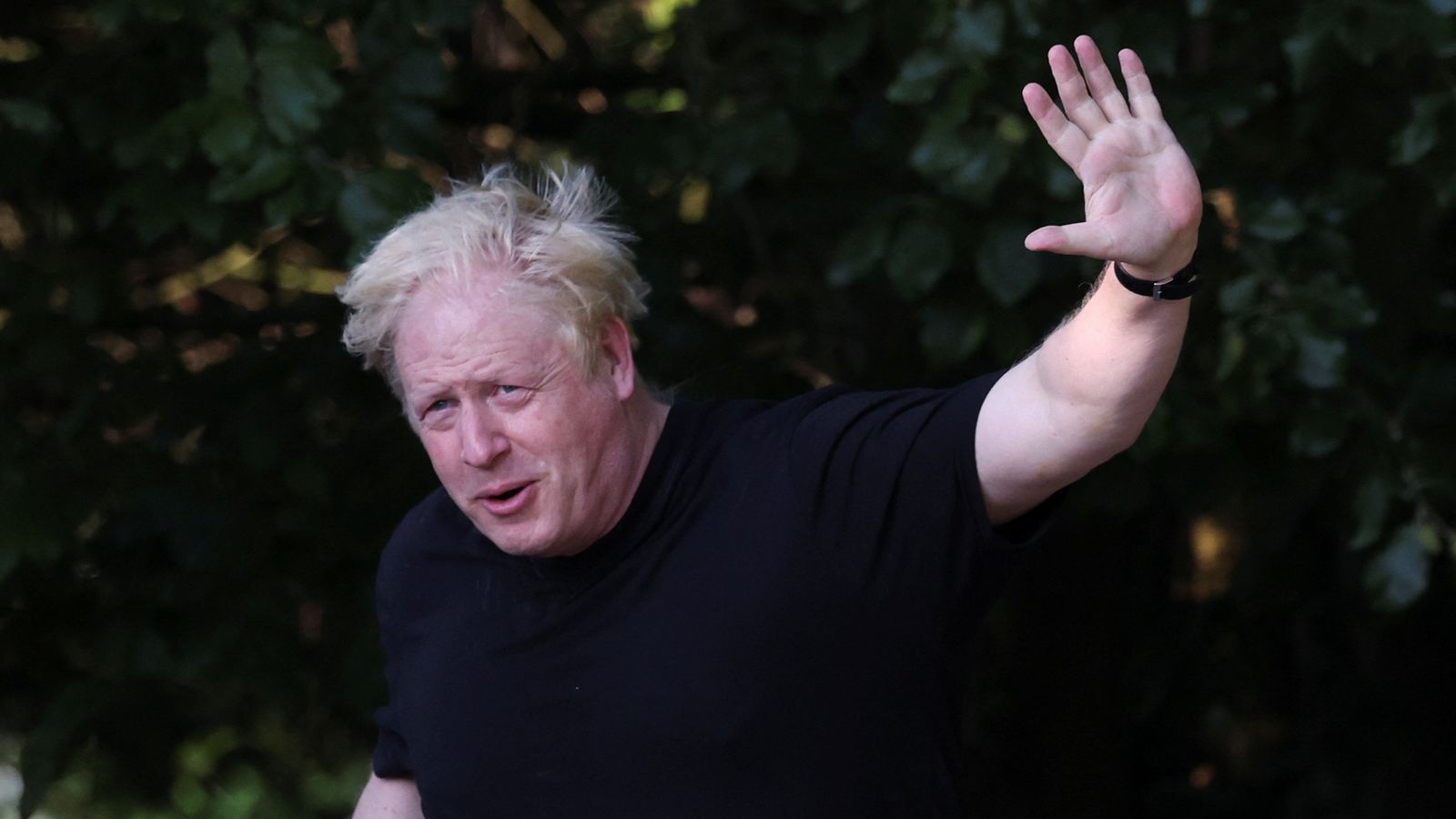Boris Johnson has paid tribute to the villagers who Sky News revealed turned him away from his local polling station when he tried to vote without a valid photo ID – under rules he introduced.
The former prime minister has said he had attempted to cast his ballot using a magazine sleeve with his name and address on as proof but was prevented from doing so.
The requirement to provide photo ID was introduced by Mr Johnson during his time in Downing Street as part of the Elections Act 2022.
The move was controversial over fears it would bar people from voting, particularly among disadvantaged groups.
Local election live: Khan likely to cling on to London – as West Midlands on knife-edge
Mr Johnson had been seeking to vote in South Oxfordshire, where a police and crime commissioner for Thames Valley was being elected.
Writing in his Daily Mail column, he said: “I want to pay a particular tribute to the three villagers who on Thursday rightly turned me away when I appeared in the polling station with nothing to prove my identity except the sleeve of my copy of Prospect magazine, on which my name and address had been printed.
“I showed it to them and they looked very dubious… within minutes I was back with my driving licence and voted Tory.”
Read more:
The winners and losers
Charts tell story of Conservative collapse
Analysis: Labour’s future success is less clear-cut
Thursday’s election is the first time many voters in England and Wales have had to present ID to vote under provisions first rolled out at last year’s local elections.
As well as driving licences, other acceptable forms of ID include passports, proof of age cards, blue badges, and some concessionary travel cards.
The government has also said it intends to make veterans’ ID cards a valid form of voter identification after former service personnel were turned away.
Veterans’ minister Johnny Mercer apologised to those who had been unable to use the document to vote, vowing to “do all I can” to have it added to the list of valid identification.
Labour said the government has had years to ensure the card was included, having begun rolling out the scheme in 2019.

